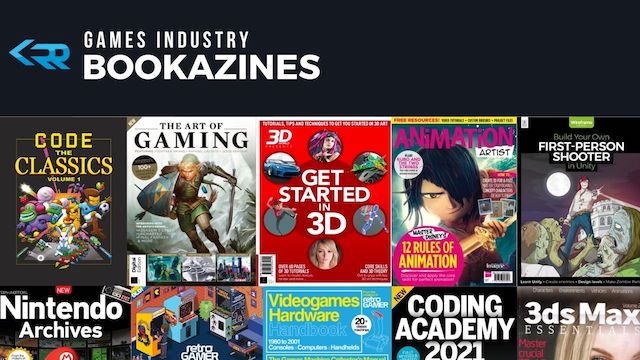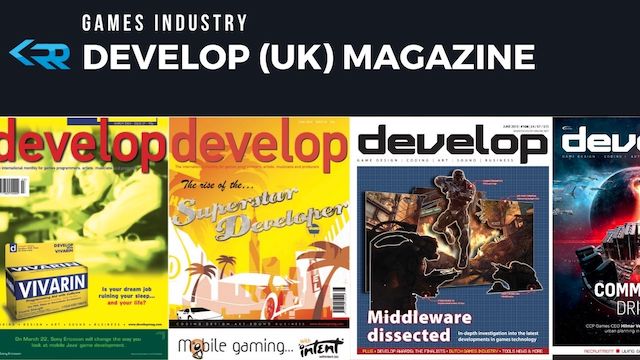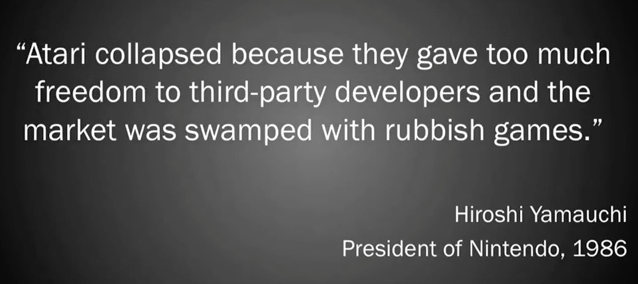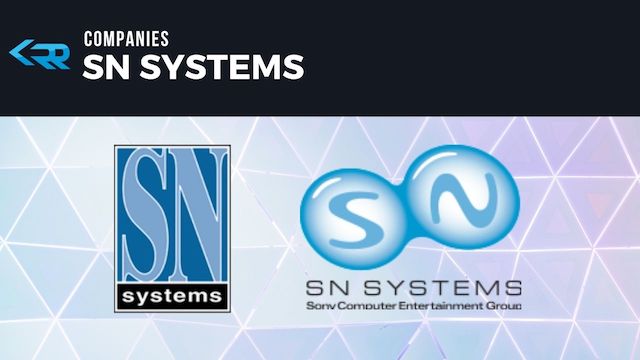
Have you ever wondered what it was like to be a developer in the games industry in the 80s/90s/00s?
This page will try to collect all the information we know about to help paint a picture of what it must have been like.
If you know of any other footage or information that should be added to this page please get in touch, there must be more out there!
Commercial Breaks was a 30 minute documentary series in the UK about businesses and one episode in particular from 1984 is of interest to this site, it was called “The Battle for Santa’s Software”. It followed two British software companies, Imagine software and Ocean, only one remained at the end of the show!
On the Imagine Software side Mark Butler was 23 when the documentary was filmed and it shows his extravagant lifestyle with his fast cars and sponsored motorbike teams. He had 70 people working for them in May 1984 and John Gibson was the only programmer over 30 (Known as Granddad).
The documentary starts with Imagine Software looking great and antisipating the next big game, but sadly ends with bankruptcy. This documentary is great for showing the uncertainty in the early games industry, one minute you are on top and gone the next.
Fortunately, former programmers at Imagine Software went on to establish Psygnosis, known for the Psy-Q development SDKs.
On the other side was Ocean Software and David Ward who managed to survive the time it took to film the documentary and showed off some of their upcoming games for the festive period.
You can find more information about this documentary over on VHiStory: Commercial Breaks – Film 84 – Tomorrow’s World – Micro Live – tape 1 - VHiStory
This rare documentary was part of Careers for the 21st Century by Takeoff Multimedia, it shows what life was like as a developer working at SEGA between 1993 and 1995.
To find out more we have a separate post all about it here:
From the BBC show Working Lunch the reporter Rory Cellan Jones visits the Dundee studios of DMA Design in 1996 as they are working on the Original Grand Theft Auto:
They interview people in the programming (David Kivlin), music (Craig Conner), sound effects, QA (Gordon Ross and Fiona Robertson) and there is a brief view of the motion capture (Darren?) departments for a desperate game.
When researching a video game, for reverse engineering or otherwise it can be tricky to find all the relevant sources due to most development being done behind closed doors in a time before the internet was the force it is today. So it is important to keep track of the physical media such as magazines, books and conference proceedings as they contain many information that has never been released to the internet.
Before wide spread access to the internet was common, many game developers would buy magazines to keep up with the latest in the industry and development in general, we have a post covering the most relevant magazines:
Develop was a magazine published in the UK targetted at games industry professionals, similar to the US magazine Game Developer it provides a unique insight into game engines, SDKs and other middleware which was never published online.
Due to the sheer number of magazines being published in the late 2000s, Publishers realised they could collate all the material from their monthly magazines into yearly publication. This resulted in a rather thick magazine with no advertisements about the size of a book but with the print quality of a magazine, hence the industry dubbed them bookazines.
We have an entire page dedicated to just Bookazines related to game development and the technical creative industry as a whole here:
One of the main ways for different game developers to speak to each other was at yearly conferences such as GDC or Siggraph:
Books were a must have for any game developers getting started in the industry, from teaching the basics of assembler/C to more advanced topics such as 3D rendering:
Museums about video games and game development are rare but they are becoming more popular, some are physical and others might be virtual experiences, but they are all important for preserving the history of video games:
So far we have listed documentaries that are freely available on youtube, mostly from TV broadcasts, but for a list of video game industry documentaries that you can buy check out IMDB’s list: Video game documentaries
One of the best sources of information for how retro games were developed are direct interviews with the programmers themselves. This section lists interviews available online, but for even more interviews check out the magazines section above.
DVD produced for the Kickstarter for the book The Untold History of Japanese Game Developers back in 2013: The Untold History of Japanese Game Developers DVD 1 - YouTube DVD 2: The Untold History of Japanese Game Developers DVD 2 - YouTube
Of particular note is in the second DVD: Enix programmer Toru Hidaka learned to program by reverse engineering the machine code of Cosmic Soldier, and went on to program games, create graphics, sound and compression utilities for Enix, write books on using machine code, and assist in teaching a new generation of programmers.
Also shows of a development utility created to help designers create levels for Gandhara on the PC-88 the numbers are where the enemies appear
The games industry is made up of many companies, some as small as a single person and others so large they generate billions in revenue annually. There are so many that have come and gone over the years that we can’t write about them all. Instead we focus on companies that pushed the boundaries in terms of the underlying technology, companies that most gamers may never have heard of but that made considerable technical achievements. Companies that defined iconic game engines such as Krome’s Merkury, others such as SN Systems or Cross Products that created the game development tools that were used by most of the industry.
Others who used their genius a little more on the unauthorized size by creating products that could allow unauthorized code to run on the hardware such as Datel’s Action Replay line of cheat devices.
There are a bunch of notable companies related to retro game development, many of which specialized in creating the Software Development Kits for popular consoles such as the Mega Drive (Cross Products) or PlayStation 1 (SN Systems).
Cross Products was a British company specialized in creating development tools for game programming, founded in 1989 by Ian Oliver and Andy Craven. It was a collaborative venture between two UK game companies, Realtime Games Software and Vektor Grafix. Cross Products created cross-platform development tools and kits especially for consoles during the late 80s and early 90s.
SN Systems is a company that specialised in creating development tools for game developers in the UK, it created development tools for Sega and Nintendo consoles but is most famous for their Sony PlayStation development tools like PSYQ.
There are a bunch of notable companies related to game hacking which not only worked on Cheat devices like the Game genie or Action Replay but also unlicenced products that allowed homebrew games consoles much to the annoyance of the console manufacturer.
Datel is most famous for their Action Replay line of products but also created homebrew enablers for the Gamecube and Nintendo DS along with tons of unlicensed games and applications for a wide range of home consoles and handhelds.
This is a collection of known interviews with game developers who developed retail (and sometimes unlicensed) games while the console was still on the market.
| Source | Developer | Games | Description |
|---|---|---|---|
| Retro Gamer issue 5 | Protovision | Metal Dust, Tanks 3000, Pac It | The members of Protovision discuss their work developing games for the Commodore 64. The interview mentions several of their games. |
| Retro Gamer issue 95 | Shaun Hollingworth | Firelord | Shaun Hollingworth worked at Teque London and developed the Commodore 64 game Firelord. |
| Source | Developer | Games | Description |
|---|---|---|---|
| Retro Gamer issue 11 | Color Dreams/Wisdom Tree | Bible Adventures | This interview features developers from Color Dreams/Wisdom Tree, discussing their unlicensed, religious-themed NES games. |
| Source | Developer | Games | Description |
|---|---|---|---|
| Retro Gamer issue 9 | David Doak | GoldenEye 007 | Doak is known for his work on GoldenEye 007 for the Nintendo 64. |
| Source | Developer | Games | Description |
|---|---|---|---|
| Retro Gamer issue 45 | Yuji Naka and Takashi Izuka | NiGHTS into Dreams, Journey of Dreams | Discuss the making of NiGHTS into Dreams and its sequel, Journey of Dreams for the Wii |
| Source | Developer | Games | Description |
|---|---|---|---|
| Retro Gamer issue 39 | Developers at Rare | Jetpac Refuelled | Discuss the making of Jetpac Refuelled for Xbox Live Arcade |
Many Game Boy developers worked freelance and were contracted out by companies to work on a title with a harsh deadline of a couple of months or sometimes even just weeks! Others were hired full-time by companies and would work on a constant stream of new games.
Jas Austin was one of the developers who started off freelance on the Game Boy version of R-Type but did such a good job that he accepted a full time job a B.I.T.S 1.
He heard about the job through his agent which was a common way for game programmers to find work in the late 80s to early 90s. But by the 2000s games had grown so much that they would require whole teams of developers and hiring freelances who worked from home became rarer.
Mamemeister presents a retrospective on the life and work of Archer Maclean, a renowned programmer known for pushing the technical limits of 8-bit and 16-bit hardware. The video discusses his most famous works, such as Dropzone and International Karate +, and shares personal anecdotes about his passion for arcade hardware and game development.

What do you call a product that collects articles from monthly magazines into a single yearly publication? The publishers came up with the term “Bookazine” to cover this concept of... ...
History of Codemasters Codemasters is a British video game developer and publisher known for its long history in the gaming industry. It was founded by brothers Richard and David Darling... ...
The practice of game cloning in arcades and consoles goes back to the industry’s origins – to take a quote from a 2001 issue of the Japanese CONTINUE magazine 1:... ...

Develop Develop was a UK magazine dedicated to game developers in the industry similar to the US magazine Game Developer, it published 11 issues a year, one a month except... ...
A quick look at software used to crack early games industry titles such as SoftICE, W32Dasm and OllyDbg
...GameMaker was a unique magazine first published by Future PLC in the UK in October 2003. It was a game development and modding magazine targeted at the general public! It... ...

Why Nintendo doesn’t like 3rd party developers? In 1986 the year in which many believed the video games industry was finished due to the Atari collapse (google for the ET... ...
Have you ever wondered what it was like to be a developer in the games industry in the 80s/90s/00s? This page will try to collect all the information we know... ...
Virtual Experiences AUTO MUSEUM 64 Built in Unity Auto Museum 64 is a virtual Museum of 3D Vehicles from a variety of Nintendo 64 games. It was built by leoburke... ...
Retro Gamer is a British magazine devoted entirely to classic video games, first launched in January 2004 1. Over the past 20+ years it has grown from a niche quarterly... ...

Working At SEGA Documentary This rare documentary was part of Careers for the 21st Century by Takeoff Multimedia, it shows what life was like as a developer working at SEGA... ...

History of Cross Products Cross Products is a company that specialised in development tools for game programming, located in the UK and founded in 1989 by by Ian Oliver and... ...

SN Systems is a company that specialised in creating development tools for game developers in the UK, it was founded in 1989 by Martin Day and Andy Beveridge 1. Martin... ...